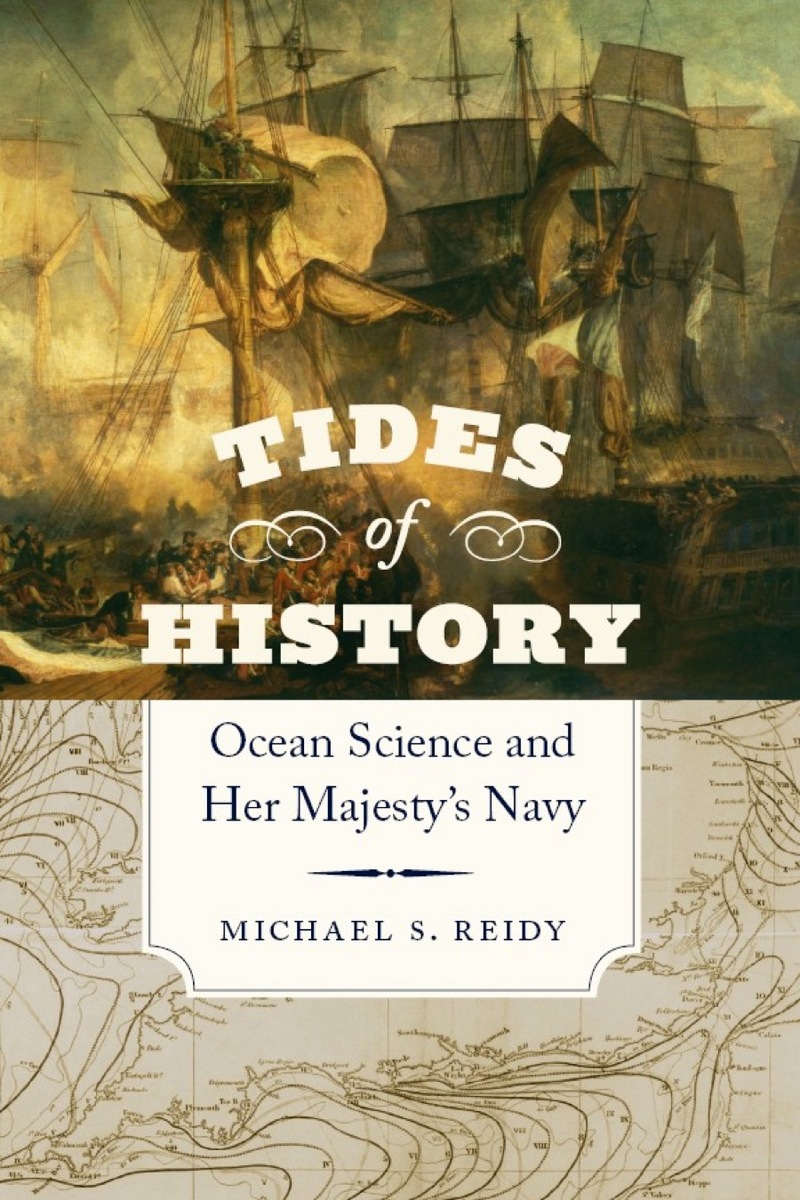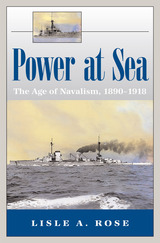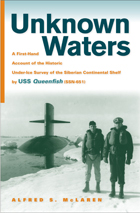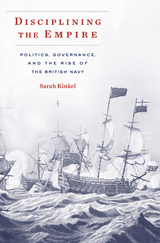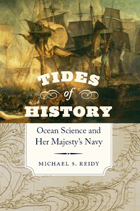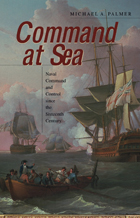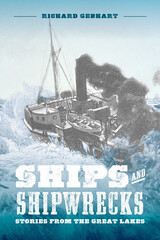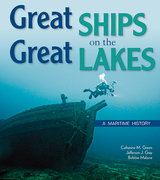Tides of History: Ocean Science and Her Majesty's Navy
University of Chicago Press, 2008
eISBN: 978-0-226-70933-8 | Cloth: 978-0-226-70932-1
Library of Congress Classification VA454.R25 2008
Dewey Decimal Classification 359.00941
eISBN: 978-0-226-70933-8 | Cloth: 978-0-226-70932-1
Library of Congress Classification VA454.R25 2008
Dewey Decimal Classification 359.00941
ABOUT THIS BOOK | AUTHOR BIOGRAPHY | REVIEWS | TOC | REQUEST ACCESSIBLE FILE
ABOUT THIS BOOK
In the first half of the nineteenth century, the British sought to master the physical properties of the oceans; in the second half, they lorded over large portions of the oceans’ outer rim. The dominance of Her Majesty’s navy was due in no small part to collaboration between the British Admiralty, the maritime community, and the scientific elite. Together, they transformed the vast emptiness of the ocean into an ordered and bounded grid. In the process, the modern scientist emerged. Science itself expanded from a limited and local undertaking receiving parsimonious state support to worldwide and relatively well financed research involving a hierarchy of practitioners.
Analyzing the economic, political, social, and scientific changes on which the British sailed to power, Tides of History shows how the British Admiralty collaborated closely not only with scholars, such as William Whewell, but also with the maritime community —sailors, local tide table makers, dockyard officials, and harbormasters—in order to systematize knowledge of the world’s oceans, coasts, ports, and estuaries. As Michael S. Reidy points out, Britain’s security and prosperity as a maritime nation depended on its ability to maneuver through the oceans and dominate coasts and channels. The practice of science and the rise of the scientist became inextricably linked to the process of European expansion.
Analyzing the economic, political, social, and scientific changes on which the British sailed to power, Tides of History shows how the British Admiralty collaborated closely not only with scholars, such as William Whewell, but also with the maritime community —sailors, local tide table makers, dockyard officials, and harbormasters—in order to systematize knowledge of the world’s oceans, coasts, ports, and estuaries. As Michael S. Reidy points out, Britain’s security and prosperity as a maritime nation depended on its ability to maneuver through the oceans and dominate coasts and channels. The practice of science and the rise of the scientist became inextricably linked to the process of European expansion.
See other books on: Great Britain. Royal Navy | Oceanography | Reidy, Michael S. | Royal Navy | Tides
See other titles from University of Chicago Press
